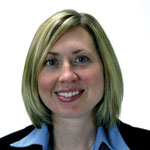
Features
Business
Research
Building your case for SR&ED through strategic relationships
March 19, 2008 By Sheri Penner
If you’ve been reading this magazine for a while you probably already know about the SR&ED or “R&D” program and how to claim and maximize tax credits for the work you do.
 If you’ve been reading this magazine for a while you probably already know about the SR&ED or “R&D” program and how to claim and maximize tax credits for the work you do. At the risk of repeating previous articles, SR&ED is a government-run incentive program designed to encourage the development of new products and processes in Canada. If you’ve never investigated the possibility of making a claim in your business, our past experience is that it often makes sense for you to consider doing so.The focus of this article will be on maximizing your SR&ED through strategic relationships. In the course of performing these engagements, I am often asked the same two questions by my greenhouse clients:
If you’ve been reading this magazine for a while you probably already know about the SR&ED or “R&D” program and how to claim and maximize tax credits for the work you do. At the risk of repeating previous articles, SR&ED is a government-run incentive program designed to encourage the development of new products and processes in Canada. If you’ve never investigated the possibility of making a claim in your business, our past experience is that it often makes sense for you to consider doing so.The focus of this article will be on maximizing your SR&ED through strategic relationships. In the course of performing these engagements, I am often asked the same two questions by my greenhouse clients:
-
What type of R&D should I do?
-
How can I increase my claims?
Although I invariably have lots of answers to help increase their claims (see my article in the July 2007 issue of Greenhouse Canada, page 34), I’m not generally in a position to tell clients which projects to specifically pursue. My expertise comes with helping companies make claims for work that they have already done or are planning to do, not in planning experiments. Having said that, you should always pursue projects that will help you succeed in the future. There are a number organizations and consultants who are trained to perform R&D and who love to plan new research. So my advice for both of these questions is to develop strategic relationships with such R&D organizations.Who are these R&D organizations?
Government agencies — There are many research groups that are funded by the government. In the greenhouse industry, OMAFRA is a key agency. Guelph University, Brock University, Vineland Research Station and Harrow Research Centre are all places in Ontario that come to mind when I think of specialists in agriculture research.
Member organizations — These groups are generally member-funded through annual fees and exist for the betterment of the industry.
Although R&D is not their primary focus, they will often take on projects or contract R&D work on behalf of the group. Flowers Canada (Ontario) Inc., the Ontario Greenhouse Vegetable Growers association, the Ontario Greenhouse Association, and the B.C. Greenhouse Growers Association are examples in this category. Virtually every province has its own greenhouse association that is easily found on the Internet.
Independent consultants — Many technical specialists, professors and PhDs carry on their own businesses that specialize in assisting growers with their growing operations or in leading R&D projects on their behalf. Some of them have worked or currently work at government research agencies and are familiar with the issues in your region.
What type of work would these people do with a greenhouse?
Generally the research organizations and membership organizations will partner with you to perform R&D projects together. They will often contribute their time and expertise while you contribute your land, plants, labour, etc., to the project. Independent consultants will usually lead R&D in your facility on your behalf, also using your resources. The key difference is that the research in the first two cases is for the betterment of a larger group while the research in the last case is for your benefit only. In all cases, they provide planning and direction when it comes to setting up your trials. These people do not make SR&ED claims on your behalf, rather they help you plan and perform the eligible SR&ED activities.
How Would Working With These People Benefit an SR&ED Claim?
Working with a research specialist can have many intangible benefits as well as tangible benefits in the form of increased SR&ED tax credits through the following:
-
Tax credits for any qualified amounts paid to the service provider.
-
New project identification.
-
Improved project planning and documentation.
-
Improved credibility for your projects claimed.
-
Assistance in preparing your SR&ED claim or working with your SR&ED claim service provider.
-
Assistance in defending your claim upon audit.
Get to know the greenhouse specialists in your community and consider ways to get them engaged in your business. It could make dollars and sense for you in the long run.
Please note that the details of the SR&ED Tax Credit Program have been simplified for the purposes of this article. The tax laws associated with this program are highly complex and you should consult your SR&ED tax expert before making a claim.
Sheri Penner is a senior tax manager in the Niagara-based SR&ED department of Deloitte. 905-323-6014, spenner@deloitte.ca
Print this page